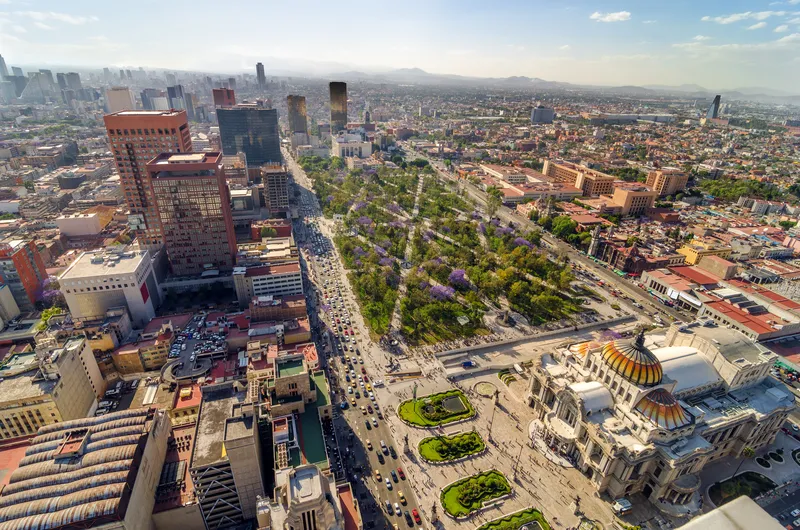
Mexico ranks seventh globally in road traffic fatalities, which makes it essential for all stakeholders to assume their co-responsibility to improve mobility and road safety and achieve the goals established in the second Decade of Action for Road Safety, warned specialists who participated in the 8th Dialogue of the National Alliance for Road Safety (Anasevi) and Intertraffic Mexico.
Globally, there are 1.3 million deaths from motorway accidents. Although in Mexico, most highways have an average of three stars within the iRAP global index, many of them still require improvement in safety levels. During the conversation, the need to maintain a safe system approach was recognised, meaning that humans, vehicles and road infrastructure must interact in a way that guarantees a high level of safety, so that the collaboration of all actors from the public and private sectors and civil society must participate in the effort to reduce road accidents.
Arturo Cervantes Trejo, president of Anasevi, said Mexico faces the challenge of achieving the objectives of the Second Decade for Road Safety 2021-2030, which involves reducing the number of accidents by 50%, and that Intertraffic Mexico 2022 (held from 8-10 November at the Citibanamex Center in Mexico City) will contribute to strengthening measures for mobility and road safety.
Vinicio Serment Guerrero, general director of Technical Services of the Ministry of Infrastructure, Communications and Transport (SICT), considered that road safety education should be a compulsory subject in schools. He pointed out that road safety is similar to a global pandemic, so the objective is to minimise the number of fatalities and injuries on the roads. He assured delegates that the federal government is working to improve highway infrastructure.
Serment Guerrero presented the Sectorial Program for Communications and Transportation 2020-2024, under which public resources are to be invested in accident prevention with equipment, safety infrastructure, impact cushions and adequate signalling in each project, which will strengthen road safety actions. He said that road safety audits are carried out to contribute to reduce risks, accidents and accident victims, as well as in the homologation of road signs in the country.
Eliminate high-risk roads to save lives
Edgar Zamora, regional leader for Safer Travel for iRAP Americas, an organisation dedicated to saving lives by eliminating high-risk roads around the world, spoke of the importance of having a world free of high-risk roads and warned that, in Mexico, most roads are rated at an average level of three stars in the safety index, which represents an intermediate point in the international scale that goes from one to five stars.
Abel López Dodero, senior transport specialist at the World Bank, focused his presentation on the subject of investing in infrastructure to reduce road accidents and emphasised that work is being done in coordination with institutions such as Banobras to develop safer and more inclusive projects for drivers, pedestrians and cyclists. He said that the World Bank invests resources especially in mobility projects that guarantee safe conditions.
During his participation, Ruben Lopez Barrera, general director of Aleatica Mexico, pointed out that road infrastructure concessionaires are a key differentiator in promoting and guaranteeing the right to mobility in safe road conditions on highways. "In line with the new Mobility and Road Safety Law, at Aleatica we are convinced of the model of safety and shared responsibility, so the accident rate must be analysed in a comprehensive manner where the infrastructure, the user and the vehicle are evaluated," commented López Barrera.
"Aleatica's accident reduction strategy has proposed investments of 1,297 million pesos in road safety between 2020-2024, with 700 million already invested between 2020 and 2021," added the director.
Moving forward with Mexico's comprehensive commitment to reach a zero accident vision will only be achieved with the coordinated participation of authorities, industry, users and civil society.
To close the dialogue, Bosco Martí Ascencio, global director of institutional relations and communication at Aleatica presented the Aleatica Foundation for Road Safety and highlighted that its purpose is to turn commitments into actions and promote a cultural change around road safety education, under a comprehensive and multisectoral approach that will drive a common agenda that promotes public policies to improve road safety.
"As an industry, we have a responsibility to rethink what we contribute to our society and to ensure that we make measurable contributions to create safe, smart and sustainable mobility," added Martí Ascencio.
Safe mobility issues will be part of the agenda at Intertraffic Mexico 2022, 8-10 November at Centro Citibanamex in Mexico City. This is the main meeting of the mobility sector and will be a meeting point to learn about advances in mobility of the future, artificial intelligence, road safety and accessibility in transportation, electromobility and parking technology, traffic management, road infrastructure, among other innovations and solutions for Mexico.
This article was first published at www.intertraffic.com/mexico










